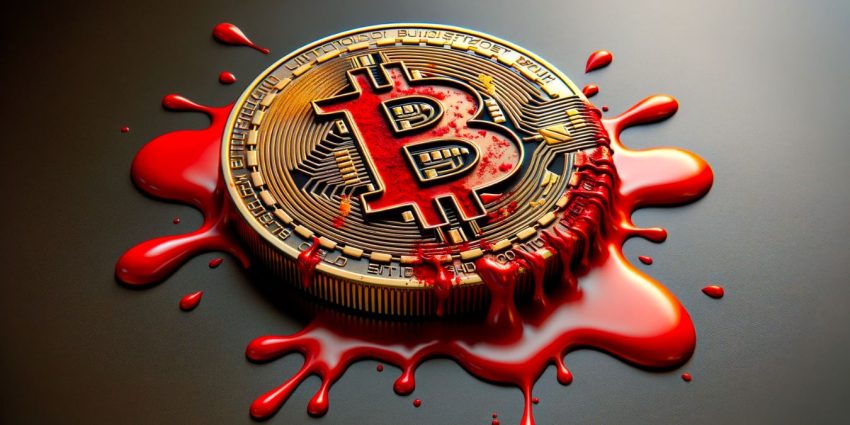The United States government has filed a notice to sell approximately $130 million worth of Bitcoin seized from the Silk Road case. This move follows the court-approved forfeiture of 69,000 BTC in the Silk Road case and is part of the resolution of the massive 144,000 Bitcoins seized from the platform. The government’s latest action is detailed in a recent court filing from the United States District Court for the District of Maryland.
Key Insights
- The US government intends to sell $130 million worth of Bitcoin seized from the Silk Road.
- The sale follows a court-approved forfeiture of 69,000 BTC related to the Silk Road case.
- The seized assets were valued at over $1 billion at the time of the 2020 seizure.
- Interested parties have 60 days from January 10, 2024, to file ancillary petitions claiming an interest in the forfeited property.
- The assets were forfeited by convicted Silk Road drug traffickers Ryan and Joseph Farace.
- The case further underscores the government’s increasing capability to track and seize digital assets linked to criminal activities.
The Silk Road was the first major Darknet Market, predominantly used for money laundering and the illegal drug trade, as well as other illegal items and services. This particular market plays a major role in how Bitcoin became the powerhouse it is in 2024 after Ross Ulbricht made Bitcoin payments the go-to method.
The platform’s operations, which fundamentally challenged law enforcement’s understanding and response to digital crime, came to a halt in 2013 when the FBI shut down the website. Following the closure, a substantial amount of Bitcoin was confiscated. The total seizure included around 144,000 BTC, which, at the time of the seizure in 2020, was valued at over $1 billion. Among the seized assets were Bitcoin SV (BSV) and Bitcoin Cash (BCH).
More than ten years after the FBI managed to take down the darknet market, they’re still profiting from it. At this current time, between the IRS and US law enforcement seizures, the US Government is one of the largest Bitcoin Holders in the world. But after holding tokens for an extended period of time, they’ve finally taken the moment to sell off their stash.
This move by the U.S. government is expected to have significant implications for the crypto industry as it not only underscores the government’s increasing involvement and regulation in cryptocurrency-related matters but also highlights the evolving legal landscape surrounding digital assets.
Sean Bridges Bitcoin Being Sold
The legal journey post-seizure involved intricate and lengthy court proceedings. In August of last year, a judgment was made for the forfeiture of 69,000 BTC in connection with the Silk Road case. This decision was only cleared to take effect in December, as per a subsequent court filing.
According to the notice, the Bitcoin belonged to Sean Bridges. Shaun Bridges was a former U.S. Secret Service Special Agent who played a significant role in the investigation of the Silk Road. Bridges was on the Baltimore Silk Road Task Force from 2012 to 2014 as a forensic computer investigator to identify and prosecute individuals involved in the Silk Road operations, including Ross Ulbricht. His work was focused on uncovering illegal activities on the Silk Road platform and gathering digital evidence against those running and using the marketplace.
However, as per DOJ press release, Bridges’ involvement took a criminal turn when he engaged in illegal activities himself. Prior to reporting to prison for a 2015 conviction related to theft, he was arrested on charges related to another theft of approximately 1,600 bitcoins from a digital wallet owned by the U.S. government. Bridges admitted in his guilty plea to using a private key to access this wallet and transferring the bitcoins to other wallets at different exchanges, which were under his control. This betrayal of his position and the law led to his conviction on charges of money laundering.
The recent development in this saga is the U.S. government’s decision to sell approximately $130 million worth of Bitcoin seized from the Silk Road case, which includes assets forfeited by Bridges. As part of his plea agreement, Bridges agreed to surrender the stolen bitcoins to U.S. agents.
In August 2023, the court’s decision finalizing the forfeiture of the Silk Road Bitcoin to the U.S. government marks a major milestone in legal proceedings concerning digital assets. The filings have officially been sent and processed as of 20 December 2023. This decision by the U.S. Court of Appeals for the Ninth Circuit confirms the transfer of approximately 69,370 Bitcoin, along with other cryptocurrencies, into federal control. The move is a culmination of years of legal work and investigations following the shutdown of Silk Road.
“Silk Road was the most notorious online criminal marketplace of its day. The successful prosecution of Silk Road’s founder in 2015 left open a billion-dollar question. Where did the money go? Today’s forfeiture complaint answers this open question at least in part. $1 billion of these criminal proceeds are now in the United States’ possession.”
Today, the DOJ released a forfeiture notice to commence the sale. The recent notice issued by the United States District Court for the District of Maryland indicates the government’s intention to sell the seized Bitcoin. The specifics of the notice include the forfeiture of 2874.904256 Bitcoin, seized from Ryan Farace and Sean Bridges, and 58.742155166 Bitcoin from Ryan Farace alone, with a combined approximate value of $130 million.
In accordance with the law, the notice provides a 60-day window, starting January 10, 2024, for any individual or entity other than the defendants in the case to file ancillary petitions expressing their interest in the forfeited property.
“Any person, other than the defendant(s) in this case, claiming interest in the forfeited property must file an ancillary petition within 60 days of the first date of publication of this Notice.””
Forfeiture Notice
Even after selling a further 69,000 BTC, the U.S.’s holdings are still worth more than $4.5 billion. This status raises questions and possibilities about the future role of the government in the cryptocurrency market. While the government currently does not actively trade or manipulate these assets, its substantial holdings give it a potentially powerful voice in shaping the future of cryptocurrency regulations and market dynamics.

